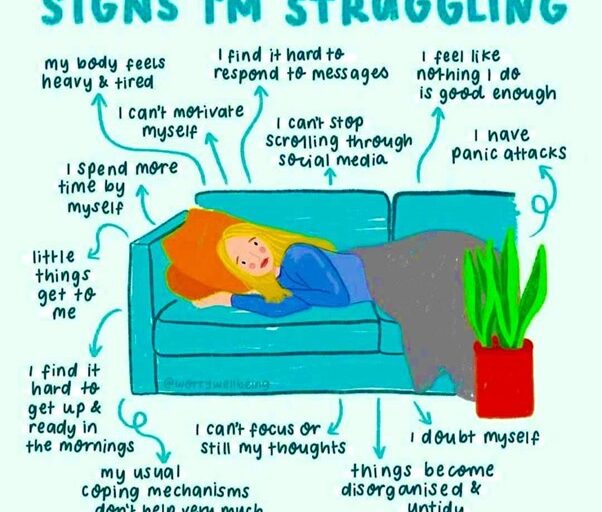Welcome to September. This month’s article looks at relationship breakdown. Breaking up with someone is tough on both parties and it can be hard to know the best way to initiate a discussion about how to end an intimate relationship. Working hard to end your relationship with compassion and kindness can help to reduce hurt and damage for everyone involved including children, wider family and joint friends.
Sadly, more than 1 in 5 adults said they had experienced a complete breakdown in a relationship at home or work in the largest study of social ties conducted in the UK during 2021. A quarter of people reported worsening relationships with their spouse or partner and a quarter reported difficulties with colleagues or co-workers, according to University College London’s Covid-19 Social Study. More than one-fifth (22%) of adults experienced a complete breakdown of a relationship with family, friends, colleagues or neighbours.
Younger people were more likely to have their relationships affected, with experts saying it showed the disproportionate effect of the pandemic on this age group. They added that job losses and anxiety over finances could have played a role, coupled with the negative impact on social connection during Covid-19 increasing isolation. We have seen a huge rise in social anxiety and low self-esteem in our client population over the last 2 years both among young people but also older adults.
There are many reasons why relationship difficulties leading to break-up arise. They may have been present for a while and get to the point where they need addressing, or they can feel like they come about suddenly.
- Personal change – as we move through life, there are many things that change about how we view ourselves and how we view others; our values and priorities are constantly evolving. This can make it difficult to know who we are, who we want in our lives, how we interact with others and what values we place on particular relationships. This can lead to relationships that we once viewed as solid feeling less certain resulting in complications and potential break down of this relationship.
- Past relationships – Relationships in the past including our childhood experiences can have a big impact on how we relate in the present and the future. If we have experienced difficult relationships in the past, this can impact on our ability to trust in our relationships. This difficulty in trusting can lead to tensions in our relationships that can be hard to overcome.
- Attachment trauma – The concept of attachment trauma is basically looking at how unmet needs of unconditional love and safe connection in childhood can lead to us compulsively seek out adult relationships to create feelings of self-worth and fill the gaps of connection that we didn’t receive in early years. A relationship-compulsive person can believe that they are unlovable and unworthy, constantly looking to others to meet the needs that they unconsciously believe will never be met. This leaves them vulnerable to high levels of rejection, feeling abandoned which leads them to excessively seek out external validation and safety in others, hoping that intimate adult relationships will give them the psychological scaffolding that they identity is missing internally. Sadly, ‘attachment hungry’ adults can be attracted to unhealthy and potentially abusive partners. Such relationships then increase low self worth, lack of healthy boundaries and create a cycle of abusive or unsatisfactory relationships.
- Media – We see all too often in the media, the ‘perfect’ couples with their ‘perfect’ relationships, this can make it difficult when our experience in a relationship doesn’t live up to this leading to negative self-comparisons and feeling disgruntled with what we have and who we are.
- Differences – as well as change we can experience in ourselves while we are in relationships there may just be differences that we did not realise at the start. Differences in interests, differences in relationship expectations, differences in what we want for our future and differences in how we deal with difference! These differences can work in a positive way in some relationships, but for others they can create many conflicts.
If you feel that it’s time to move on, look at these tools to help make the transition from “us” to “you” a little smoother.
- Have an open discussion. Take the time to talk with your partner about your desire to end your relationship. Do your best to be honest about your reasons and how you’d like to move forward. For example, instead of saying something general such as, “It’s just not working out,” try to be more specific. You might say, “I feel like our arguments about ‘X’ are unresolvable, and that makes it hard for me to see a future together. What do you think?” A clear explanation might help your partner better understand and accept your decision. If you have to communicate in writing, it can ease things when you’re open and thoughtful.
- Make an active choice. It can be tempting to withdraw slowly from your partner and hope that the relationship fizzles out or do things that you perceive will result in your partner ending your partnership ie having an affair. But avoiding contact, spending less time together, keeping conversations superficial, or even starting more fights so your partner makes the first move can make a breakup even more painful. If you’re ready to end your relationship, make the first move and bring it up to your partner. Try saying, “I’m at a point where I feel it’s best to end our relationship,” instead of something vague such as, “I need some space.”
- Show empathy, even if you’re hurting too. Breaking up can be particularly tough on the non-initiator (the person being broken up with). Be considerate and try to speak positively to avoid causing unnecessary pain. Although having empathy means genuinely caring about how your partner is feeling, it doesn’t mean you have to be dishonest to protect her or him. Instead of using the “it’s not you, it’s me” line, try avoiding blame and using “I” statements to communicate your feelings and take responsibility for your part in the situation.
- Be direct and appropriate. It’s hard to know the right way to confront someone with news that’s surprising or maybe hurtful. Avoid using indirect means such as having a friend break the news, starting a new relationship first, or changing your “relationship status” on social media before talking to your partner. Instead, try having a private and direct one-on-one conversation about your desire to end your relationship.
When it comes to breaking up, it’s normal that one partner may feel more ready to leave than the other. Breaking up with empathy and compassion makes it more likely that you’ll both heal more quickly and move on in happy and healthy ways although this will take time.
Understanding your brain
We are all evolving in a world that is in constant change. When we become stressed and overwhelmed in response to feeling out of control or facing changes, our survival brain can get automatically triggered which can be unhelpful if the threat is not something which we are in immediate danger from eg being assaulted. Our survival brain responds via our amygdala and can send us into fight, flight, freeze, flop or befriending/fawning/giving in – remember we can feel overpowered physically but also emotionally/psychologically. This can mean that our rational, problem solving and balanced part of our executive function brain is not working well right at the time when we may be forced into making big life decisions. What can help is introducing simple, daily ways we can calm and soothe our nervous system when we recognise that the threat system has taken over. Certain types of breathing and grounding techniques, body movements and mindfulness exercises can help soothe our survival brain.
Working with our polyvagal system in practical, simple ways supports our nervous system. Polyvagal theory was developed by Stephen Porges (1994) and explains the role of our vagus nerve in emotional regulation, social connection and fear response. Look at the work of Stephen Porges on YouTube or watch this summary of what polyvagal theory is all about:
Polyvagal Theory Explained Simply – YouTube
Look at conscious breathing, visualise a safe calm place, have a smell to hand that you find calming. The work of Deb Dana and Stephen Porges offers us all the opportunity to switch on our calming and soothing system. Polyvagal Guided Living | Rhythm of Regulation
This is where the concept of self-compassion is so powerful. Kirsten Neff (an American psychologist) and Dr Paul Gilbert (founder of the Compassionate Mind Foundation) share a wealth of scientific evidence on how compassionate thinking can support us when facing major change and life adjustment. Self compassion is basically responding in the same way towards you as you would others when you have a difficult time, notice something you don’t like about yourself, feel guilt or shame. It helps slow down our self-critical ‘part’ which can be easily activated at times of stress.
“Having compassion for yourself means that you honour and accept your humanness. Things will not always go the way you want them to. You will encounter frustrations, losses will occur, you will make mistakes, bump up against your limitations, fall short of your ideals. This is the human condition, a reality shared by all of us. The more you open your heart to this reality instead of constantly fighting against it, the more you will be able to feel compassion for yourself and all your fellow humans in the experience of life.” Kirsten Neff, 2023 What is Self-Compassion? – Self-Compassion
Often feeling guilty or ashamed about why a relationship is breaking down, things we may be doing that we don’t like about ourselves causes us to withdraw from others and the world around us. This avoidance then creates a spiral of negative thinking leading to low self-esteem and low mood, even depression and suicidal thinking. Take a look at your support network and share openly with people that are in your trusted circle what is going on for you; look after yourself during this period of difficult life adjustment, be honest and genuine with yourself and keep coming back to your personal values to guide your decisions. Building in daily simple ways to help your body calm and soothe itself, enabling your nervous system to support you will help your emotional resilience. Think of it like marathon training for the brain. Resources (compassionatemind.co.uk)

If we are feeling overwhelmed by the stress of life change due to relationship breakdown, we can find ourselves in a spiral of trying to keep going as ‘normal’ and maintaining a high level of function which can come at the detriment of our psychological and physical health in the longer term. Shame or the fear of what others will think of our decisions and personal situation can lead to feeling paralysed about decision making too. Even simple decisions like what to eat can feel overwhelming and changes in sleep, appetite and energy levels are common. Our anxiety and worry thinking can escalate causing mental/physical exhaustion and other health problems such as increased blood pressure, headaches, gut and musculoskeletal problems. We may start over using food, alcohol, prescription drugs, illegal substances, shopping, gambling, sex/porn as a way of trying to escape or soothe our distress. Sadly this can lead into a cycle of addiction and other practical problems such as debts.
If you identify with any of this, you may find it helpful to make an appointment to see your GP to explore how you feel both physically and psychologically. Having regular check-ins about how you are coping with relationship breakdown can be a valuable safety net. These can be with health professionals but also people in your trusted circle who know you well and have your best interests at heart.
Some people find working in couple/family therapy helpful or consider the option of family meditation. If you think this could help you both negotiate the practical implications of splitting up such as parenting arrangements, finances, take a look at the sources below. The fear of high legal costs, concerns about money and living arrangements are often reasons that people remain in unhealthy or abusive relationships but there are many ways that costs can be kept to a minimum including legal aid for people in a domestic abuse situation.
Home – Family Mediation Council
Affordable advice to help with family problems | Advicenow
All of us at The Wellness Consultancy are here to help individuals who are struggling with life adjustment. We provide individual and couple therapy, along with support for parents/carers with children. Talking therapy can be a useful way to make sense of what’s going on in your life by offering a safe, confidential space that can help you to develop robust coping strategies that supports a balanced mindset where we can make wise decisions and life choices. One to one therapy may not appeal to you (or be financially viable) and there are many other ways to access support such as in group activities, online forums, education and self help. Below is a list of information and support freely available.
Further information:
Relationships / Family (supportline.org.uk)
https://www.citizensadvice.org.uk
https://thehumancondition.com/polyvagal-theory-exercises-benefits-examples
Polyvagal Theory Explained Simply – YouTube
Stephen W. Porges, PhD | Polyvagal Theory (stephenporges.com)
Resources (compassionatemind.co.uk)
https://www.saferplaces.co.uk/support-for-men#
Home – Women’s Aid (womensaid.org.uk)
LGBTQ+ victims of domestic abuse – IDAS
Domestic abuse: how to get help – GOV.UK (www.gov.uk)
Helping children through separation | Gingerbread
Rachel Wesley
Trauma Psychotherapist, Clinical Supervisor
Email: wellness-consultancy@outlook.com
https://thewellnessconsultancy.org


